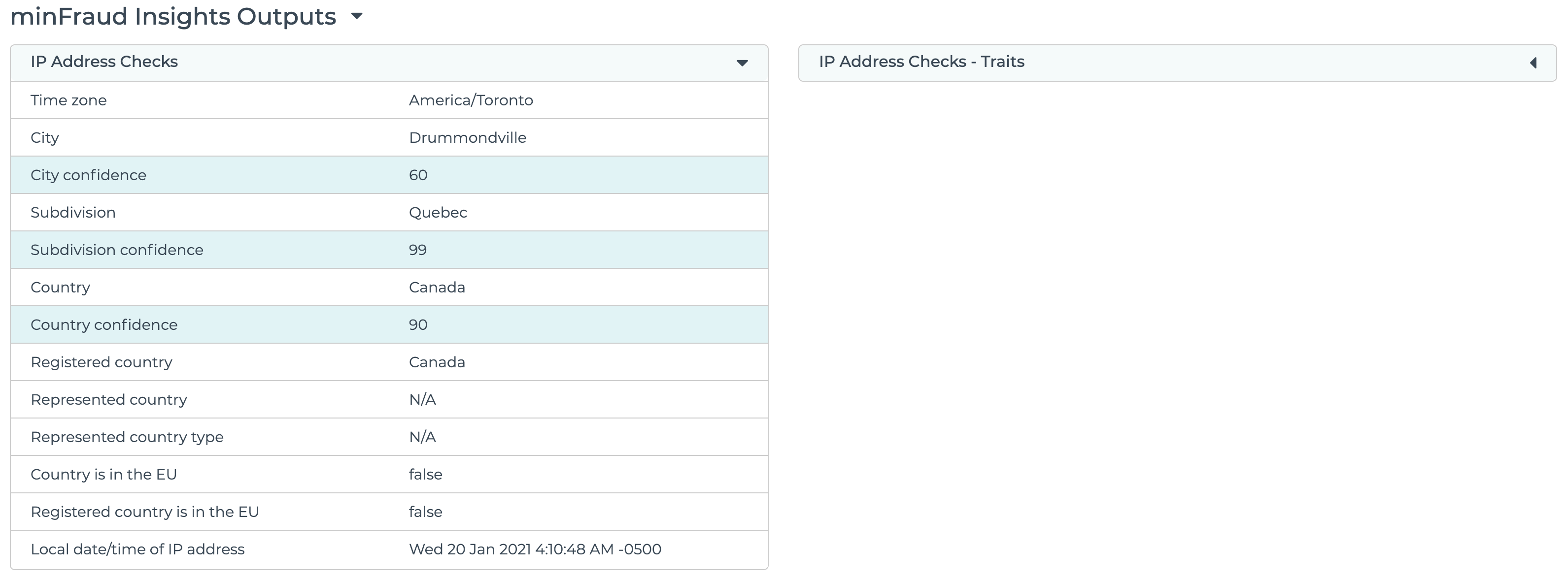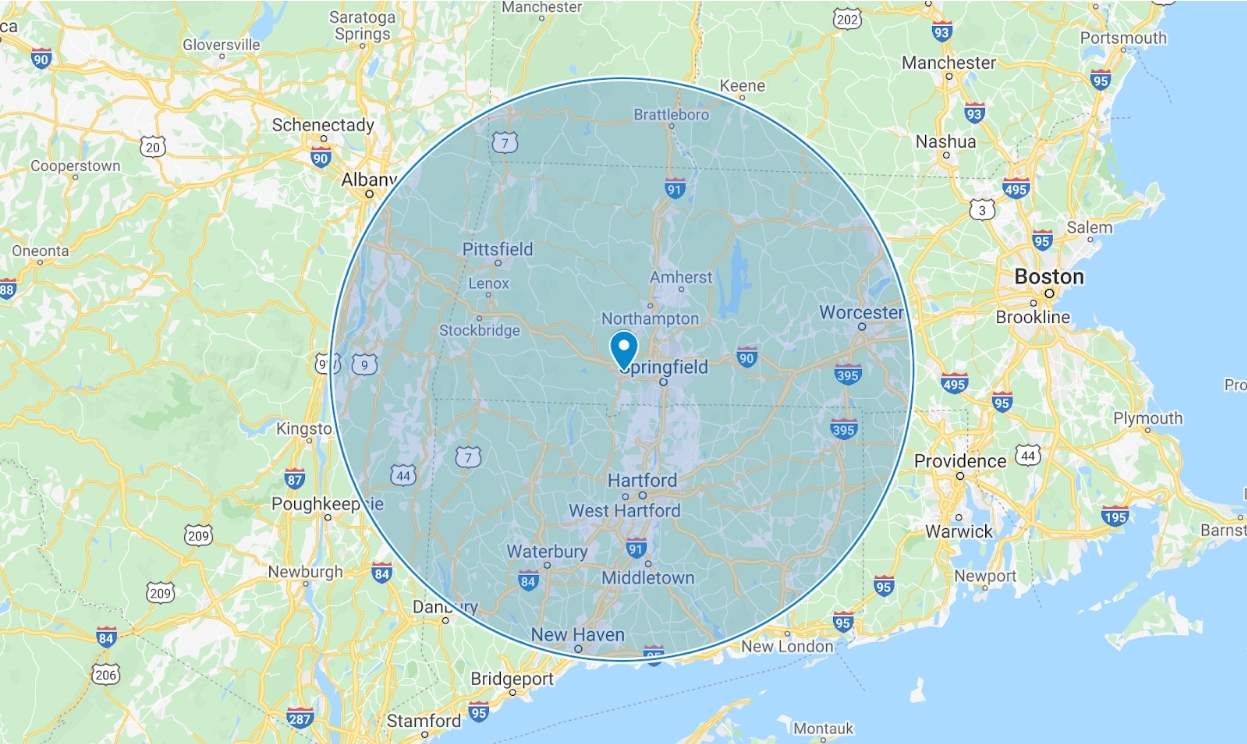IP geolocation risk data
IP geolocation risk data includes:
- our confidence in our IP geolocation values,
- accuracy for the IP geolocation,
- and information about IPs that may be registered to countries that don't match their IP geolocation.
These data points will only be returned when you pass the IP address as an input to the minFraud Insights and Factors web services. Learn more about passing inputs to minFraud.
IP geolocation can approximate the location of the IP address which was used to conduct a transaction. IP geolocation data is inherently imprecise, but it can be used to assess risk by comparing the IP geolocation of the transaction against known customer data as well as other data from the transaction. For example, if your customer has an account and they list their address in Russia, but minFraud's IP geolocation for the transaction locates to the United Kingdom, this may be an indication that the transaction was not initiated by your customer. You can also compare the IP geolocation to the provided billing and shipping addresses. Learn more about billing and shipping risk data.
It's important to note that IP geolocation will not accurately locate the end-user who initiated the transaction when the end-user is using an anonymizer or other proxy. You can tell whether the end-user is using an anonymizer or proxy by consulting the IP anonymizer risk data, or the IP risk reasons. Learn more about IP anonymizer risk data and IP risk reasons.
If you are using IP geolocation risk data to perform manual review, you may also be interested in the IP risk score. The IP risk score is available in all minFraud services. Learn more about the IP risk score.
IP geolocation confidence factors
Confidence factors are our confidence, expressed as a percent, that our geolocation values are correct. We provide confidence factors for the country, city, subdivisions, and postal code values that we return. If the IP geolocation data we return does not seem to correspond to a location that makes sense for your business, or for the specific customer involved in the transaction, you can check our IP geolocation confidence values. If we have a low confidence in these values, it may be that your customer is actually conducting their transaction from a different location than we determined.

Geolocation confidence factors are displayed under IP Address Checks in the transaction review screen in the account portal. Learn how to review transactions using the account portal.
You can read the API specifications for our confidence factors on our developer portal:
Accuracy radius
The accuracy radius defines the area in which we believe the IP address is actually located. IP geolocation is inherently precise, and should never be used to locate individuals or specific households. We are able to geolocate IP addresses with differing levels of precision, ranging from 5 km to hundreds of km. If the expected location of the transaction falls within a circle with its center at the longitude and latitude outputs, and with a radius equal to the accuracy radius output, this suggests that the transaction matches the expected location.

In the example above, MaxMind returns the coordinates 42.1293, -72.7522 with an accuracy radius of 100km. The actual geolocation of the IP address is likely within the 100km-radius circle shown above.
The accuracy radius is not displayed when reviewing transactions through the account portal, but it is returned as part of the API response.
You can read the API specification for our accuracy radius output on our developer portal:
Latitude and longitude
You should note that IP geolocation is inherently imprecise, and can never locate individual households or street addresses. The latitude and longitude outputs for minFraud are used to define the center of a circle in which we believe the IP address is likely located. It should always be combined with our accuracy radius output, detailed above.
The latitude and longitude of the IP address are not displayed when reviewing transactions through the account portal, but it is returned as part of the API response.
You can read the API specifications for our latitude and longitude outputs on our developer portal:
Registered and represented countries
These data points can tell you whether the IP address associated with your transaction originated from a military base or ISP whose national affiliation is different from its location, for example a United States military base located in South Korea. If you do not expect or cannot do business with a certain country, this output can help you track those transactions.

Registered and represented country data is displayed under IP Address Checks in the transaction review screen in the account portal. Learn how to review transactions using the account portal.
You can read the API specifications for our registered and represented country outputs on our developer portal:
Learn more about IP geolocation
All of the IP geolocation risk data provided by minFraud is identical to the IP geolocation data provided by our GeoIP2 web services. You can learn more about IP geolocation in our GeoIP2 support articles.